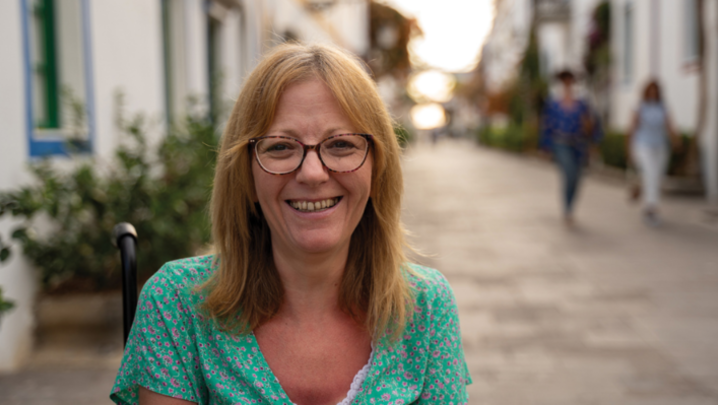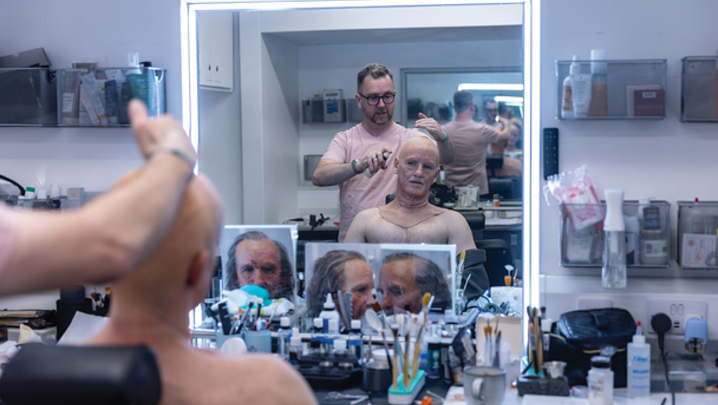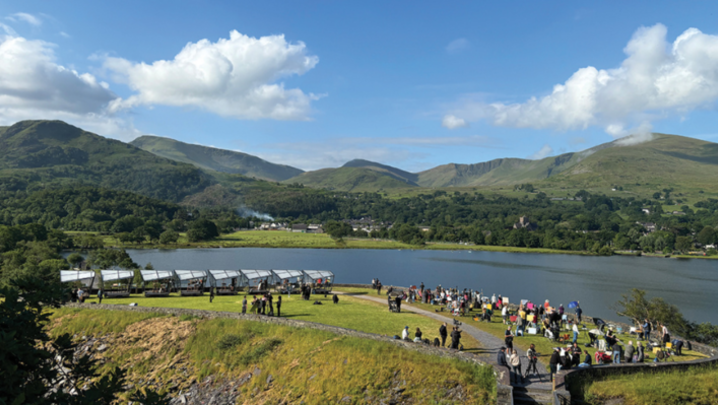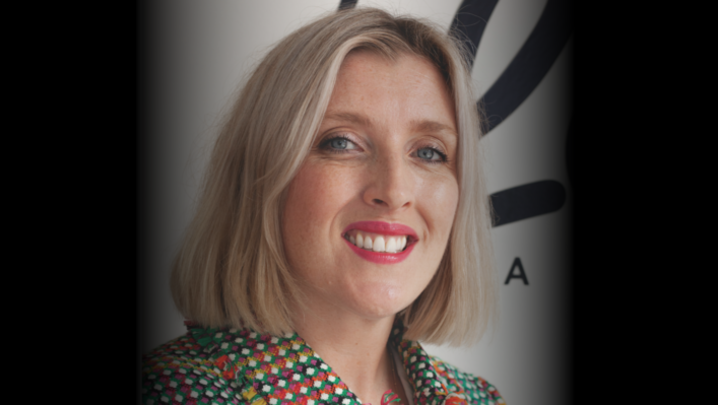Joanna Osborn has kept two successful Sister dramas, Black Doves and Landscapers, on schedule and on budget. Currently, she’s keeping HBO fantasy series House of the Dragon on track, and beating the drum for a better work-life balance in the industry.
What does the job involve?
I oversee the daily logistics of a production, working with the line producer to manage the budget and schedule. My role involves hiring equipment, crew, catering and facilities, as well as sourcing production offices and coordinating across all departments. Essentially, I keep the day-to-day machine running.
When are you brought on board?
Typically, I join during “soft prep”, before official prep begins, to set up the production office. On Black Doves, I started in May 2023, months before filming in October. The shoot lasted until March 2024, and I stayed on for another couple of months to hand things over to post-production.
Did you always want to work in TV?
Initially, I wanted to work in theatre. As a lively child, I often got into trouble at school, so my parents sent me to drama school to channel my energy. By 16, I was sick of classrooms and just wanted to work. I left school and moved towards film and TV.
How did you get to where you are?
I worked my way up in the production department. At 17, I got my start as a runner on Channel 5’s daytime chat show Trisha Goddard. After that, I took on low- and no-budget projects – often unpaid – before finding an opportunity as an assistant director (AD) in commercials. I then dipped into fashion before returning to production in film and TV in 2015. From there, I worked my way up from coordinator to manager.
What was your first show in that role?
Horrible Histories: The Movie – Rotten Romans. I was hired as a production coordinator then stepped up to manager during the shoot. My first full production manager credit was the first season of Bridgerton.
Did you enjoy working on Black Doves?
It was fun but tough. We had lots of night shoots in freezing temperatures. Shooting in central London is logistically challenging but I had a very supportive line producer (Emma Downes) and producer (Harry Munday), which made all the difference.

What are you working on now?
House of the Dragon. We have three production teams operating different units: I’ll be looking after the location unit. However, I’m expecting my second child and will be going on maternity leave before the shoot wraps.
Is it hard working in TV as a mother?
Work-life balance in the industry needs to change. For the first 13 years of my career, I worked long hours and sacrificed my personal life for the job – until I hit burnout. The Covid pandemic made me reassess and, after having my first daughter, I knew I had to make changes. The industry isn’t structured for working parents, especially mothers. When we started Black Doves, my daughter was 18-months-old, and our line producer had six-month-old twins. We supported each other throughout the shoot to maintain that balance. That was invaluable and rare.
What changes have you made?
I advocate to work 9 to 5 in prep, which we largely achieved on Black Doves. I stagger my team’s working hours to cover the full day, without working excessive overtime. Lack of flexible working options drives many women away, especially those in on-set roles; there’s a huge drop-off when they enter their 30s and want families. We’re losing so much talent. If you read the recent Looking Glass survey on mental health in film and TV, it’s clear we need to change the culture throughout the industry and support alternative ways of working, like job shares, compressed hours and hybrid working. Too many young people are leaving because they’re unwilling to work our unsustainable hours.
Can things go wrong at work?
Absolutely. On Sister’s black comedy Landscapers, for Sky Atlantic, we were due to film in a disused magistrates’ court but two days before shooting we had a flood. The plumber discovered 90 leaks across the building – we pumped out 174,000 litres of water.
What is best and worst about the job?
Best is the pace and variety – it’s always exciting. Worst is the stress and exhaustion and dealing with difficult personalities. On-set behaviour has improved over my 18 years in the industry, but there is still problematic behaviour – sexual harassment and bullying. More work needs to be done.
What makes a good production manager, and how do you become one?
Strong interpersonal skills are crucial. You interact with crew members at every level, often under pressure. You need to juggle multiple responsibilities while keeping a level head. Most people work their way up through the production office – starting as a runner, then moving through roles like secretary, assistant coordinator, coordinator and finally production manager. But you can also transition from locations or AD roles.
What’s your advice for new starters?
Get hands-on experience in different departments – you might discover a role you never knew existed. Network constantly and nurture those connections, as most jobs come through people we know. I learned on the job, but film school can also be valuable.
On Black Doves, you ran ScreenSkills’ High-end TV Skills Fund’s First Break programme...
I’m passionate about diversity and inclusion, particularly as our industry is hard to break into. When I started, I had no connections or guidance, so I understand how challenging it can be. The industry is still nepotistic – you’ll often see the same surname down a unit list. First Break helps newcomers gain their first credit, exposing them to different departments and giving a taste of the demanding lifestyle. Simone Haynes was brilliant on Black Doves – she shadowed on the show for three weeks, rotating through departments, and when our production assistant left, we offered her the job. She has since gone on to work on other high-end TV productions.
What is your career highlight?
Landscapers. It was an incredibly creative show with a truly collaborative team. I had an amazing working relationship with line producer Harry Munday and producer Katie Carpenter.
What show would you have loved to work on?
Severance, for its masterful world- building, Chernobyl for its historical storytelling, balancing large-scale production with intimate performances, and Motherland for its sharp writing and hilarious take on parenthood.







